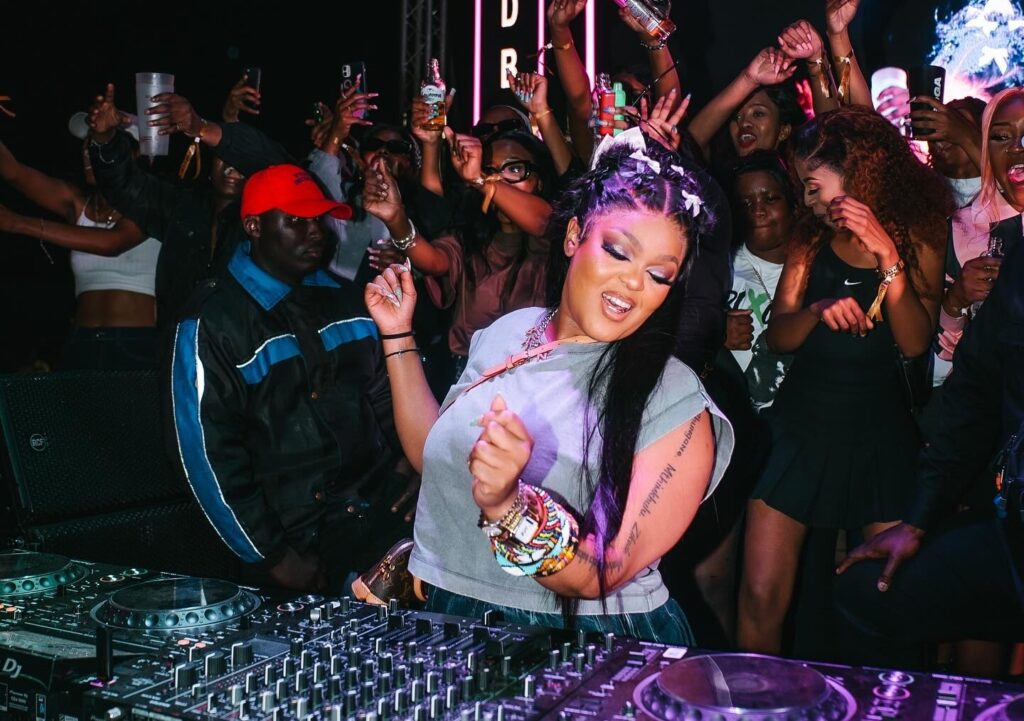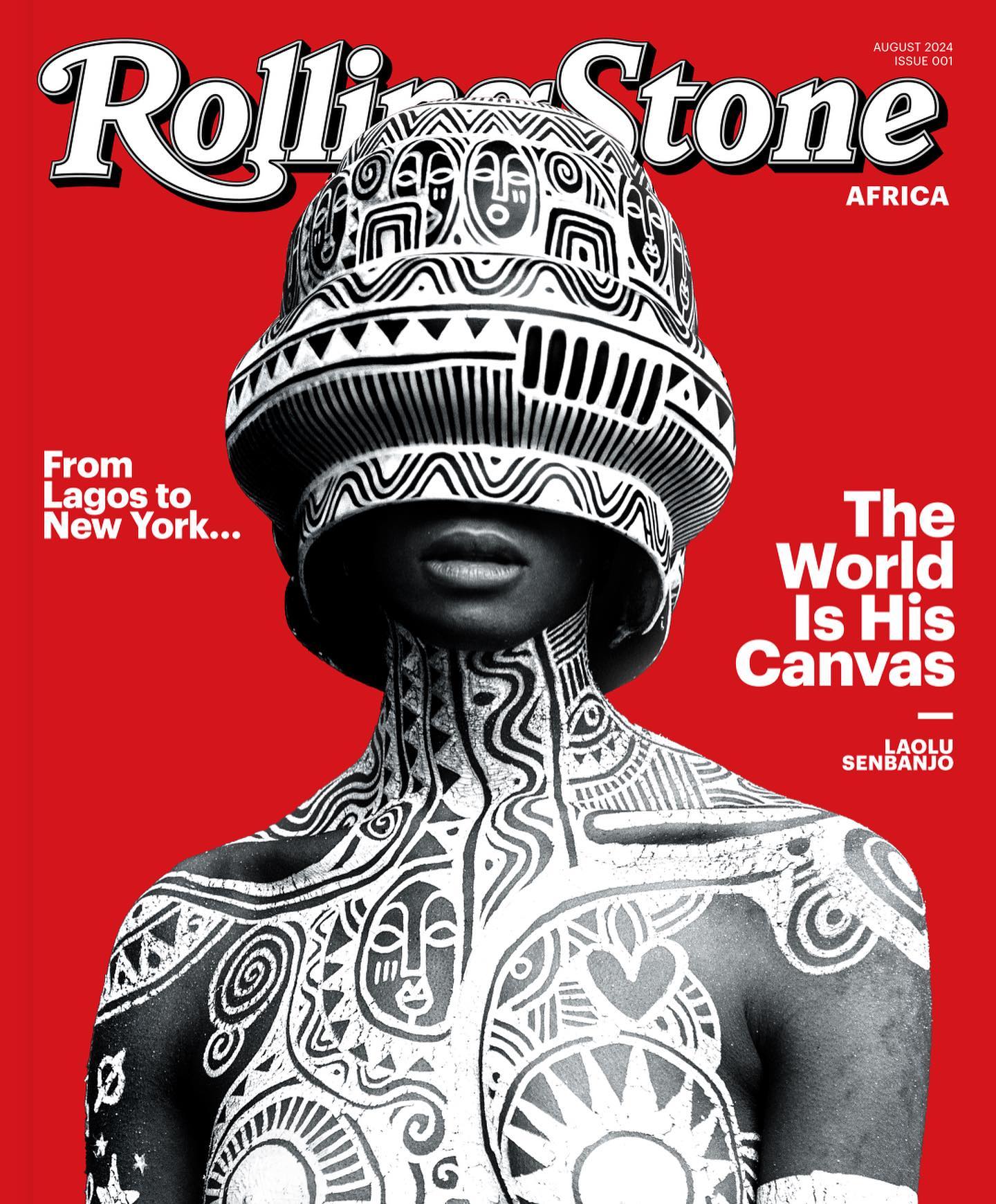


AMAPIANO HAS OFFICIALLY gone global. No longer confined to the shebeens of Guateng—the South African province from which it was birthed—the genre has firmly rooted itself on the world stage as one of South Africa’s finest exports.
Between 2018 and 2023, Amapiano streams on Spotify shot up by 5,668%, and after South Africa, the largest number of consumers of the sound can be found in North America, the UK, and Germany. As its influence continues to seep into Afrobeats and R&B—which are, by definition, pop music—the iconic log drums continue to draw listeners in and, subsequently, make them fall in love. Whether it’s Tyla’s Amapiano-infused R&B or Asake’s artful blend of Amapiano with Fuji and Afrobeats, this genre has undoubtedly opened a new chapter for African music at large.
With Black artists (gradually) reclaiming their space within electronic music, Amapiano’s success has coincided with something of a golden period for wider African music. In both facets of its identity—firstly as a dance genre rooted in house and kwaito, and secondly as an African export—Amapiano’s universality has made it accessible for non-South Africans who don’t speak Zulu or Xhosa, setting language barriers aside to sing along.
The genre is wide and expansive, catering for every niche imaginable—the slower, jazzier tempo of Kelvin Momo or Mr JazziQ is worlds away from the heavy-hitting raw bass that characterises Gqom, for example. As well as the variety, the relatively small size of the scene allows for cross-collaboration with little hierarchy, and many of its hit songs will often have multiple producers, writers and artists (the biggest song of last year, Tyler ICU’s “Mnike”, has five producers listed in the credits).
As important as its cultural impact continues to be, Amapiano has broken down barriers in the industry: the latest iteration of the annual International Music Summit, in the house music mecca of Ibiza, spotlighted and celebrated the rise of Amapiano and the global African electronic music scene, signalling a shift and acknowledgement in the wider industry of the continent’s importance as consumers and creators of electronic/dance music. The 2024 IMS Business Report, which brings together trends and forecasts concerning the electronic music industry, highlights the exponential growth of African electronic music, with South Africa having more Spotify Electronic music monthly listeners than France or Canada.
Because of this new, untapped market that mainstream media and DSPs have ignored for so long (not least due to the inaccessibility of platforms like Spotify within the continent until very recently), labels have begun to satiate the demand for South African electronic music.
Another sign of this shift is showcased in the form of Amapiano To Ibiza, a concept EP released under Armada Music, Warner Music Africa and Africori, which features Amapiano reinterpretations of classic Ibiza house tracks by Dennis Ferrer, Blaze and Inner City from South African heavyweights including DBN Gogo, Kelvin Momo, Thuto The Human and 2woBunnies, as well as shining a spotlight on newcomers like Rosey Gold and Jay Music.
Amapiano was previously subjugated to a short set at UK parties, at the bottom of the rung long after the popular UK rap, Afrobeats and dancehall sets of the night were over. If you were lucky, you might get a couple of Amapiano-influenced Afrobeats tracks from Nigerian acts, but that’s pretty much it. Fast forward only a year or so and the Amapiano ecosystem in the UK is blooming. Promoters and DJs have nourished a thriving demand in London, with larger Amapiano-centred parties such as Amafest, Piano People and Dankie Sounds often selling out 15,000-capacity venues. The party has gone abroad too, with Dankie Sounds hosting their own Ibiza weekend festival at the end of September to mark the island’s closing season, and Piano People hosting a stage at AfroNation festivals around the world—from Accra to Detroit—bringing thousands together under the umbrella of groove.
KMAT, a Pretoria-born South African DJ who is due to make her Ibiza debut at Dankie, is acutely aware of the trajectory ahead of her as she develops both at home and internationally. Off the back of her hit viral single, “MKK”, after only becoming a DJ in 2021, KMAT has been on the up and up, building a name for herself through consistent releases and appearances—something she thinks is key for Amapiano’s global growth. “Releasing music and making sure that the music reaches a global stage is how the genre will grow and become bigger and understood even more,” she says. “The only way people can support up-and-coming DJs from South Africa is by streaming their songs and also understanding that there are different kinds of DJs in this space.”
This is the nuance that allows DJs in South Africa the opportunity to spread the message abroad, but that’s not to say a responsibility doesn’t lie with ambassadors abroad. Promoters of festivals in the UK, like Dankie Sounds, like Piano People and Amafest, curate line-ups that blend the South African stars of Amapiano with rising DJs, including British-Ghanaian producer-DJ Kwamzy (whose set at Piano People in the Park had the Groove Station stage overflowing) or Charisse C, who has curated her own night, Abantu, and a radio show which celebrates Southern African stories and music.
Piano People have proven to be somewhat of an authority when it comes to London’s demand for Amapiano, delivering every single time. Since their UK debut in 2022—a sold-out, star-studded affair that introduced Uncle Waffles and DJ Maphorisa to Londoners—they have raised the bar when it comes to hosting South African dance music’s key players in the city. With a string of sold-out dates at legendary venues like Ministry Of Sound, Printworks and Drumsheds under their belt in just over two years, it’s clear that more and more Londoners are joining the groove. Although aptly named ‘Piano People’, they’ve successfully tailored a line-up that flaunts South Africa’s rich musical output—not only limited to Amapiano, but including 3-step, Gqom, Afro-tech and everything in between.
Lulu Nalungwe, a PR who works with Piano People and several Amapiano artists, notes the shift in acceptance from the mainstream crowd. “People are listening and tapping in,” she says. “People used to complain about ‘piano being played at events, even going to the extent to say that it’s just ‘noise’, but now you’ll go to an event and hear LeeMcKrazy or Shakes & Les, which is amazing. Being able to host day-long ‘piano events is incredible because it shows that there is a huge community of listeners.”
Vigro Deep, the self-styled ‘baby boy’ of Amapiano and one of the genre’s most prominent musicians, stands apart as somebody who has shifted Amapiano to the left, fusing and blending it with other strains of electronic music to concoct his own broader brush stroke of electro-house that highlights his global vision (and his background as the son of DJ Spring, one half of The Godfathers Of Deep House SA). “Amapiano has such rich potential, and by blending it with other genres like house and techno, I’m not only staying true to my roots but also expanding the reach of the sound,” he explains. “I want my music to resonate not just with South Africans but with audiences around the world. Pushing the boundaries allows me to do that while keeping the music fresh and exciting.”
Ultimately, as the genre continues to dominate and provide an infrastructure and ecosystem that allows Southern African music to thrive (and for Southern African people to benefit), the global impact of Amapiano will continue to balance the demands of a global appeal with protecting and preserving the culture and sound that made it so popular in the first place.

© Copyright Rolling Stone Africa 2024. Rolling Stone Africa is published by Mwankom Group Ltd under license from Rolling Stone, LLC, a subsidiary of Penske Media Corporation.
By providing your information, you agree to our Terms of Use and our Privacy Policy. We use vendors that may also process your information to help provide our services.
By registering for our sites and services, you agree to our Terms of Service (including, as applicable, the mandatory arbitration and class action waiver provisions) and our Privacy Policy.
We use vendors that may also process your information to help provide our services.
This site is protected by reCAPTCHA and the Google Privacy Policy and Terms of Service apply.
By providing your information, you agree to our Terms of Use and our Privacy Policy. We use vendors that may also process your information to help provide our services.